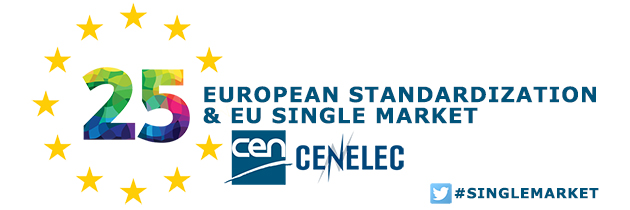
European Week Against Cancer (EWAC) – The contribution of Standardization to pre-analytical procedures for in vitro diagnostics
Date
Fri, 06/01/2018
Sections
Health & Consumers
The fight against cancer has made significant advances, but remains a key public health concern in Europe, being the second largest cause of death in the European Union. Following European Union statistics, in 2014 cancer was the cause of one quarter (26.4 %) of the total number of deaths in the EU-28. Hence, to tackle this health problem, the European Commission (EC) set up in 2009 an ambitious goal to reduce cancer incidence by 15 % by 2020 (see EC Communication on Action Against Cancer: European Partnership). European standardization is committed to citizen well-being as well as fighting cancer with standards that ensure safer products for consumers. In the context of the European Week Against Cancer (EWAC), we highlight the work of our CEN/TC 140 on ‘In vitro diagnostic medical devices’.
DIN (Deutsches Institut für Normung), who is CEN German Member and holds the secretariat of CEN/TC 140/WG 3 “Quality management in the medical laboratory” and, is a project partner in the 48-month-project SPIDIA4P (Standardisation of generic Pre-analytical Procedures for In vitro DIAgnostics for Personalised Medicine) working on the standardization and improvement of pre-analytical procedures for in vitro diagnostics.
SPIDIA4P’s successful predecessor SPIDIA, a 4.5-year project funded by the European Union FP7 programme, laid the basis for developing and introducing the first 9 CEN Technical Specifications (CEN/TS) for pre-analytical workflows into European countries.
Like SPIDIA, SPIDIA4P is again bringing together key experts from numerous stakeholder organisations to take the next steps towards improving healthcare systems with a worldwide impact. It is funded by the European Union’s Horizon 2020 research and innovation programme and consists of 19 partners. The SPIDIA4P consortium will coordinate with large European public research consortia to obtain access to research and validation studies data, serving as evidence for the new standards developments for achieving improvements of diagnosis, patient stratification and prognosis of disease.
In this frame, a new Project Liaison with Cancer-ID (Cancer treatment and monitoring through identification of circulating tumour cells and tumour related nucleic acids in blood) is being finalised.
SPIDIA4P plans to develop 11 new CEN/TS and 2 new ISO-standards (under the lead of ISO/TC 212 on ‘Clinical laboratory testing and in vitro diagnostic test systems’) for the pre-analytical workflow – some of these will deal with cancer diagnostics, as for example documents on circulating tumour cells, fine-needle aspirations, frozen tissue DNA as well as body fluids cell free DNA. The planned documents will also be applicable to research such as biomarker discovery, development and validation, as well as to biobanks. Furthermore, corresponding External Quality Assurance Schemes will be developed and implemented, aiming to survey the resulting diagnostic practice. These are needed for reducing the number of sample-based diagnostic mistakes, for reducing the number of non-reproducible pre-clinical and clinical studies, thus enabling the improvement and acceleration of biomarker discoveries and validations for reinforcing the era of personalised medicine and innovations in patient care. Two projects are currently being finalized and a series of New Work Items Proposals (NWIPs) for the second wave of the project are currently undergoing the ballot process.
SPIDIA4P is coordinated by Dr. Uwe Oelmueller, QIAGEN GmbH, an international expert leading in the field of pre-analytical workflows developments and standardization. During the Global Biobank Week 2017 in Stockholm, Dr. Uwe Oelmueller was honoured for his comprehensive merits on European and International pre-analytical standardization with the “DIN Golden Honary Needle”.
Quote:
“The standardization and improvement of pre-analytical workflows is a crucial prerequisite for reducing the numbers of diagnostic errors in healthcare and of non-reproducible research and clinical studies with human specimen. The released and the upcoming CEN Technical Specifications and ISO International Standards for pre-analytical workflows play a central role in achieving these goals.” - Dr. Uwe Oelmueller, QIAGEN GmbH, SPIDIA and SPIDIA4P Coordinator
The SPIDIA project has received funding under the Seventh Research Framework Programme of the European Union, FP7-HEALTH-2007-1.2.5, under grant agreement no. 222916. The SPIDIA4P project receives funding from the European Union’s Horizon 2020 research and innovation programme under grant agreement no. 733112.
Follow us throughout the year with the hashtag #SingleMarket. Let us know your examples of how European Standards contributed to the prosperity of the EU economy or how they impact your life for the better. Tell us your stories through the hashtag #TellEUstandards.

